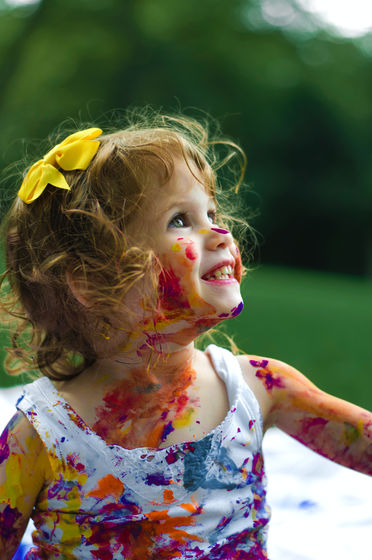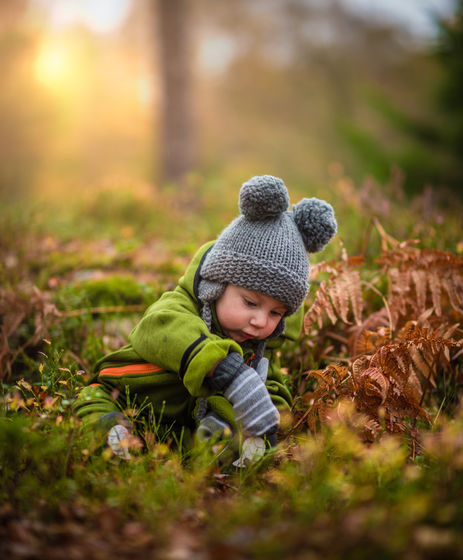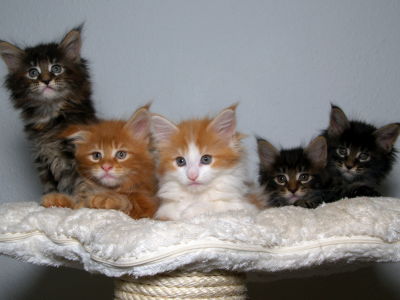Research results show that the new corona pandemic is causing delays in communication skills in babies under the age of 2, but it does not seem to affect other developmental areas such as motor skills

Due to the effects of the new coronavirus infection (COVID-19) that has spread around the world since the beginning of 2020,
Developmental and behavioral outcomes at 2 years in babies born during the COVID-19 pandemic: communication concerns in a pandemic birth cohort | Archives of Disease in Childhood
https://adc.bmj.com/content/early/2023/06/20/archdischild-2022-325271

Pandemic babies behind on communication at age two – but other developmental areas remain unaffected
https://theconversation.com/pandemic-babies-behind-on-communication-at-age-two-but-other-developmental-areas-remain-unaffected-208332
On June 21, 2023, the Archives of Disease in Childhood , a peer-reviewed medical journal covering the field of pediatrics, published an updated study of the development and behavior of infants born during the COVID-19 pandemic at age 2 years. A research paper has been published. The research was conducted by an RCSI researcher and the lead author is Susan Byrne, who studies pediatrics and child health at the same university.
According to the paper, the development and behavior of infants born during the COVID-19 pandemic at 2 years of age were remarkably similar to those born pre-pandemic, with the important exception of 'communication'. It is clear.

The RCSI research team conducted a follow-up survey of infants and families (354 families) born in Ireland during the ``first three months of the new coronavirus pandemic'' from March to May 2020. Infants and their families visited the hospital at three different times: 6 months, 12 months, and 24 months.
Since it was a pandemic period, there were cases where a visit to this hospital was the only outing for some families during the same period. In this test, experienced pediatric staff noticed that 'some infants have strong vigilance.' As for the reason, it seems that parents often explained that ``children do not go out much''. The research team conducts a questionnaire survey every time the family visits the hospital and asks various questions about the infant's life and development.
It is usually best to compare different information in this type of study with a control group of other infants born at the same time who do not have the same problem. However, due to the special circumstances of the pandemic period of the new coronavirus, the research team said that it could only be compared to ``infants born in Ireland before the pandemic.'' ``This is the limit of our study. At this time, there was no infant control group available,'' Byrne wrote.

Due to COVID-19 restrictions, infants born during the same period and their parents were severely restricted in their activities. As a result, I could hardly visit other families. According to a survey, for infants born during the pandemic, on average, only three people, including their parents, had kissed by the time they were six months old. This suggests that the infant is not seeing relatives or family friends. In addition, one in four infants born during the pandemic had never met a child their age before their first birthday.
In addition, when parents were asked about raising infants during a pandemic, it was also revealed that words such as 'loneliness', 'isolation' and 'challenge' appeared frequently. However, it seems that some positive keywords such as 'bonds with children' and 'increased family time' were also confirmed.
The research team also conducted a survey on the developmental status of 1-year-old infants. Then, it seems that the number of infants who can ``point bye and wave their hands'' was clearly lower than that of infants of the same age born before the pandemic. There was no clear difference in motor function, rather it seems that there were slightly more infants who could crawl.

Byrne said, ``It makes sense when you think about it. It's possible that they didn't need to learn how to say goodbye because they were working from home and visitors often didn't show up. , can be attributed to spending more time exploring at home.'
Furthermore, by the time infants born during the pandemic turn 2 years old, it is important to know whether they can use two or three words together to convey some idea, or whether they can refer to anything correctly. We conduct more in-depth questionnaire surveys on communication, such as whether children are able to do so, and whether they can correctly follow instructions from parents and others.
Studies have shown that infants born during the pandemic have slightly delayed communication-related development compared to infants born before the pandemic. However, it seems that there was no clear difference between infants born during the pandemic and infants born before the pandemic in the development of motor skills and problem-solving skills.
In addition, there were no significant differences in parent-reported behavior between infants born before the pandemic and those born during the pandemic.

Studies on infants born during the pandemic have been conducted in other countries , and in Japan, 5-year-olds who have experienced the new coronavirus pandemic are on average four months behind in their communication skills compared to children who have not. According to a research team at Kyoto University.
Delayed development due to corona disaster experience 4 months for 5-year-old child Impact of reduced exchange Kyoto University research | Mainichi Shimbun
https://mainichi.jp/articles/20230710/k00/00m/040/290000c

Byrne said, ``Now that there are no pandemic measures, it is very important for all babies born during the pandemic to explore the exciting outside world. 'They need to be exposed to a wider range of people, in which babies need to meet their peers. It has also been shown that talking to babies and reading to them are beneficial.' He talks about the importance of taking babies born during the pandemic outside and interacting with various people.
Related Posts:
in Science, Posted by logu_ii







